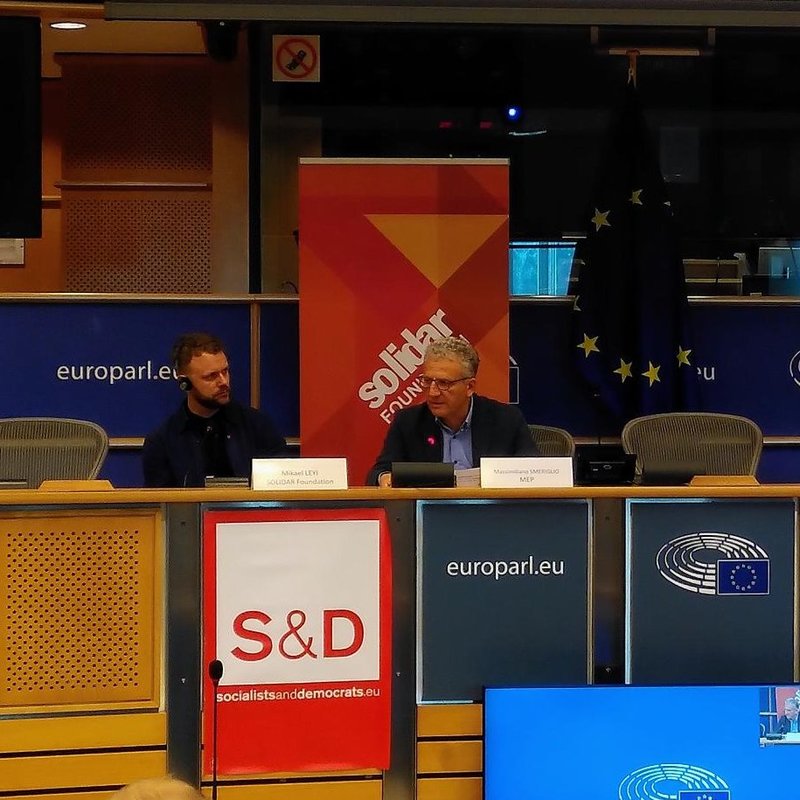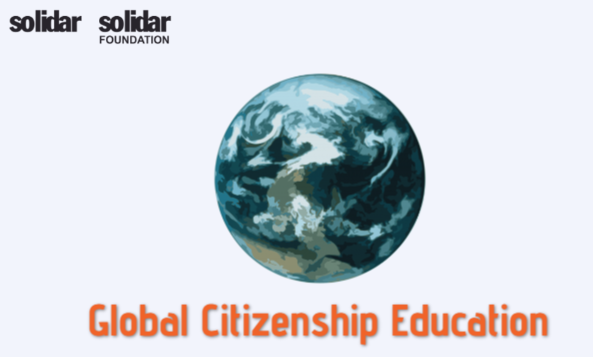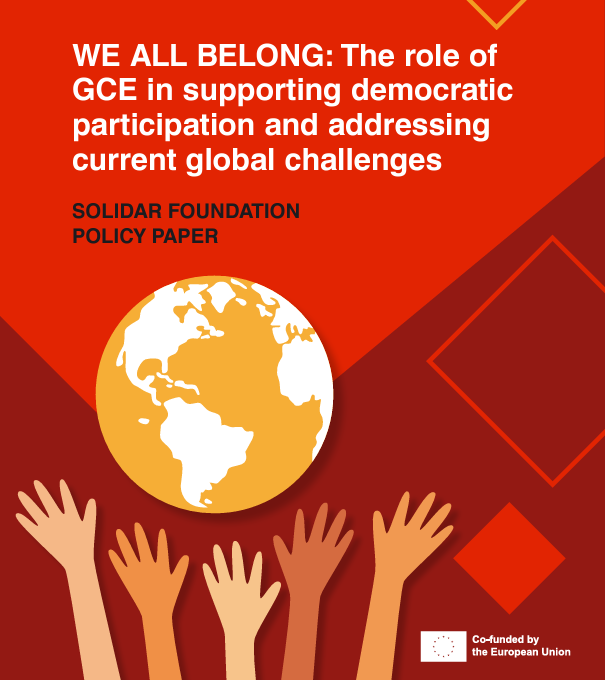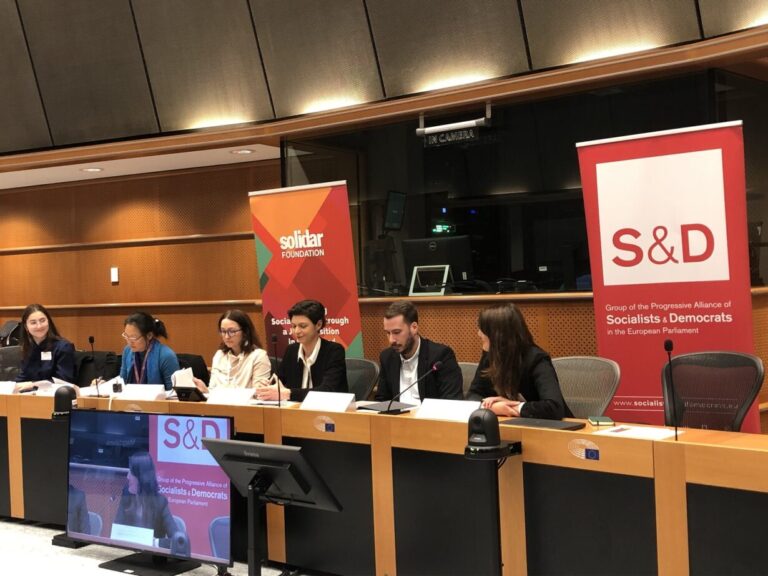Global Citizenship Education as a Political Right

On June the 8th, SOLIDAR Foundation launched its annual work on the topic of Global Citizenship Education (GCE), in a framework in which it could be established as a political right. In times of crucial need of consolidating our democracy by sustaining political participation and enhancing the competences for just twin transitions to be inclusive, Global Citizenship Education can provide the pathway to realize the democratic Europe we aim for in the global context. This discussion aimed to stimulate the debate of the usefulness of Global Citizenship Education as a political right and how it can be achieved.
Policymakers, experts, and civil society representatives gathered to kickstart the conversation about GCE first by discussing the existing knowledge and practices. In this context, MEP Marcos Ros Sempere, (S&D CULT), pointed out that any form of education, including formal, non-formal and informal education is a fundamental right, and GCE is crucial to disseminating the values of tolerance, inclusivity and human rights and realizing the 2025 European Education Area. Salima Chitalia (Project Manager, Pour La Solidarité, GCE in Belgium) confirmed that global citizenship-based activities resulted in transformational effects on educators and organisations, hence the importance of merging the efforts of the public spheres and the civil society. Inés Molinero (Project Officer, Liga Española de la Educación y la Cultura Popular, GCE in Spain) noted that the organisation sees SOLIDAR’s work on citizenship as guidelines, which caters for the need for a policy paper which is to be released this autumn. Bringing an academic perspective, Marcella Milana (Associate Professor, University of Verona), noted that Global Citizenship Education as a political right would benefit from more knowledge and methods to enable its implementation by teachers.
The round table discussion explored the availability of instruments at the European level to achieve goals in the field of education. MEP Domènec Ruiz Devesa (S&D CULT MEP) suggested using some existing avenues such as the Erasmus and mobility programmes at the EU level to teach and disseminate knowledge on Global Citizenship Education. Stefan Zotti (team leader at DG EAC) presented the two-way efforts of the European Commission in achieving Global Citizenship Education both at a cognitive and behavioral level, meaning that not only tools and materials are necessary for teaching but also mainstreaming the importance of it through the support of volunteering activities such as the European Solidarity Corps and various humanitarian aid activities. Liam Wegimont (Executive Director, GENE) pointed out that the achievement of Global Citizenship Education as a political right requires a broad coalition in the political spectrum because it involves issues of humanity that concern everyone. Moreover, he praised the European Declaration of Global Education (The Dublin Declaration) for being the result of joint international effort and calls for stronger and concerted engagement from stakeholders. According to him, Global Citizenship Education is at the core of a necessary reform and is at the heart of the renaissance of education and global solidarity in Europe.
Reflecting on Global Citizenship Education at the global level, Rilli Lappalainen (President of CONCORD and Chair of Bridge 47) remarked the importance of EU’s actions at the global level, meaning that Europe has the possibility to set an example that could be followed. Ute Ackermann Boeros (Vice President, EuroClio) revealed some data results collected by EuroClio, according to which it is paramount to address individual teachers, as issues such as corruption and reduced democracy are prevalent and hindering progress. To support value-based education, it is important to gather various groups and stakeholders and address and empower teachers. The importance of assessment of practices was brought forward by Erika Maria Rodriguez Somlyay (Policy and Project Officer, LLLP). She also called for the recognition of transversal skills, and that GCE must be treated as a lifelong and life- wide right, and it would bring citizens together to work on issues that concern everyone.
MEP João Albuquerque, S&D CULT, touched upon GCE in the context of the European Year of Skills, noting that education is not needed solely to match the labour demands but the focus should be on transversal competences and problem-solving capabilities to consolidate the basis of an educated democratic society which we aim to build, including all ages that equally need to keep the pace with the modernization patterns.
To achieve a framework of Global Citizenship Education as a political right, the round table discussion results conveyed the need for more research on methodology as well as concerted effort in achieving it among the political spectrum representatives, institutions, civil society organisations and other stakeholders. As Mikael Leyi, SOLIDAR & SOLIDAR Foundation concluded, Global Citizenship Education is not only a lifelong learning journey but a lifelong continuous work for democracy.
Click on the downloadable report of the roundtable to learn more about the discussion!





